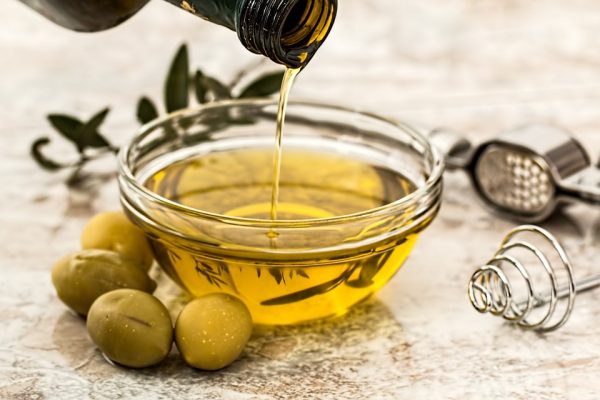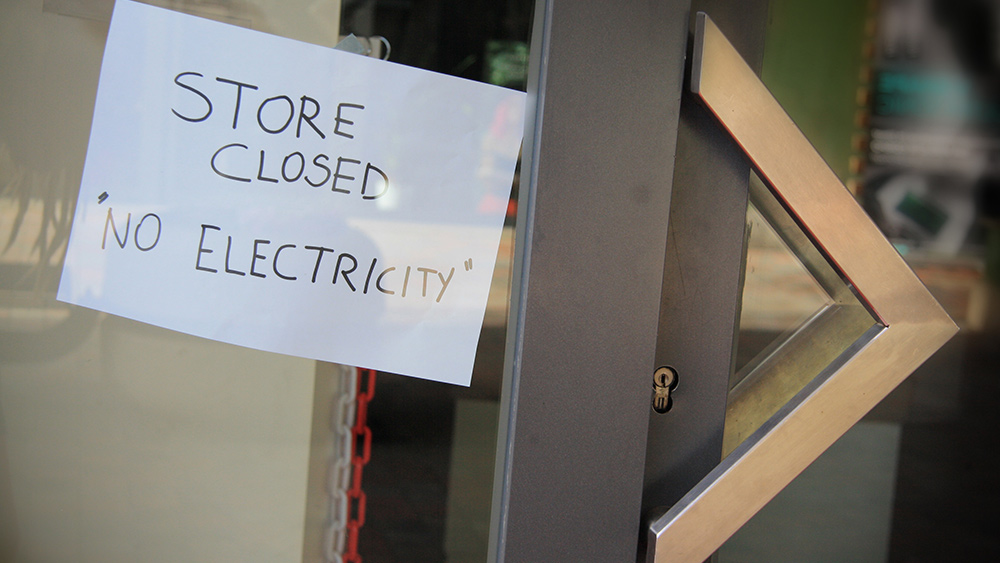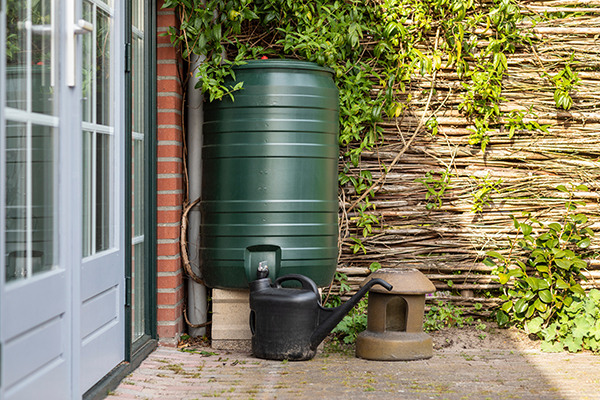 Parler
Parler Gab
Gab
Beehive
This advanced project is great if you love honey or if you would like to earn some extra cash by selling honey. You need to have some woodworking skills and the right tools. There are many beehive designs to choose from, but the Langstroth hive is one of the most common in North America. If you’re new to this kind of activity, you will need to do some research about how to make the hive and beekeeping. Honey is also a valuable addition to your stockpile. It's a natural alternative to sugar, but it also has many amazing medicinal properties. Honey has a unique pH balance and sugar level that makes it impossible for bacteria to live in it so it has a very long shelf life. Anything preserved in honey won't go bad.Bottle-drip irrigation system
If you have a home garden, you might want to try setting up a bottle-drip irrigation system. This method of irrigating vegetables is easy to make. It's also a water-efficient way to water your garden, and it can help encourage deep root growth for strong plants. When setting up the system, make sure you only use BPA-free plastic bottles to avoid harmful contaminants. After you make holes in the bottom of the bottle, use the cap to regulate the flow of water. The looser the cap is screwed onto the bottle, the more water is released onto your plants.Composting toilet
When SHTF, you may need a composting toilet to maintain proper hygiene and sanitation on your property. This kind of toilet is ideal because it doesn't use any water and you can build one with some carpentry skills. A composting toilet can save you from having to flush gallons of water. As a bonus, the completed compost can be used as fertilizer for your garden. A composting toilet is also an efficient way to dispose of human waste, especially if you live in a rural area without a proper sewage system. If you have a septic tank, switching to a composting toilet means you don't have to empty your septic tank after SHTF. The compost from this type of toilet can be added to a regular compost heap or composted separately. To make the compost safe for use in your garden, it needs to undergo hot composting to kill any pathogens that might be in it.Cooking equipment
During a power outage, you may find yourself unable to use usual services, like gas. Before this happens, make sure you're prepared by building a device that will see you through these common scenarios. One such thing you will need is an alternative way to cook, like a wood stove or a homemade solar stove. These stove and oven designs are easy to build and use firewood as fuel. The simplest ones use flat stones with repurposed grilling from an old cooker on top to balance your pots and pans. Others repurpose tin cans, oil barrels and old propane tanks. You can also make a rocket stove from bricks or cinder blocks. This kind of stove is best if you want to use less wood than other stoves. Follow the steps below to make a rocket stove from recycled cans: You will need:- Large coffee can (1-1/2 o 3 lbs. in size)
- Two empty vegetable or soup cans (12-16 ounces)
- Sand, gravel or pebbles
- Small grill grate or an 8-inch square of wire mesh
- Tin snips or metal shears
- Drill with a 5/16-inch or larger bit
- Pencil or marker
- Remove the labels from the cans before you light the stove to prevent them from burning up, but wait until after you've cut the holes. Making the cut marks on the label is easier than writing on the can itself. Remove the tops and bottoms from both vegetable cans.
- Hold the opening of one vegetable can to the side of the other and trace the outline onto that side. The bottom of the opening should be a little lower than the bottom of the other can: This means you're tracing a "U" shape instead of a full circle. Use tin snips to follow the line you traced to cut the "U" shape from the side of the can.
- Trace the outline of the vegetable can on the side of the coffee can near the bottom, about half an inch from the rim. Use a drill bit to make a starter hole at the edge of the outline on the coffee can. Use the tin snips to carefully cut out the full circle and remove it.
- Place the vegetable can with the cutout into the coffee can and turn it so the holes in both cans align. Pass the other vegetable can through the side of the coffee can and into the smaller can to make the firebox and chimney for your rocket stove.
- Fill half of the coffee can with sand, gravel or pebbles. Make sure you don't spill the material into the center can. It will help keep the firebox and chimney in place while also keeping the outside of the stove from getting too hot.
Garden of medicinal herbs
You may already have a ton of medicine in your stockpile but if you're dealing with a long-term survival scenario, your supply may eventually run out. If you're worried about this happening to you when SHTF, you might want to plant medicinal herbs that can be used as natural alternatives to certain meds. Herbs are easy to grow and many of them can be used as home remedies for minor ailments.Greenhouse
Aside from a garden on your homestead, building a greenhouse will allow you to germinate seeds early. With a greenhouse, you can enjoy a longer growing season, which then gives greater yields in your garden. Building a greenhouse doesn't have to be an expensive project. To save money, you can build your greenhouses using affordable and repurposed materials. To save money on your greenhouse, use items like:- Bubble wrap
- Old window frames
- Plastic bottles
- Plastic sheeting
- PVC pipes
Smokehouse
If you're also raising animals for meat on your homestead, a smokehouse is a great project since it will allow you to preserve meat for your stockpile. Use the smokehouse to preserve fish you've caught or a larger animal you slaughtered from your livestock. With some basic construction skills, you can build a smokehouse out of wood or cement blocks. It can also be as small as an outhouse. To produce smoke, you need to burn charcoal, sawdust or wood chips. Use the smokehouse to make delicious smoked meats, fish and fowl. To add more flavor to smoked meat, marinate the meat or rub a sauce or spice mix into the meat before smoking.Water filtration and purification system
If you already have a rainwater catchment system in place, upgrade it by adding a filtration and purification system. With this upgraded setup, you can use the rainwater you've collected or a nearby source of water like a lake or river if you run out of water after SHTF. (Related: Prepper essentials: Tips for setting up a rainwater collection system.) To make a simple water filter, you need tools like large plastic bottles, cloth, activated charcoal, gravel, small rocks, sand and rubber bands. After making the filter, you can use it to filter out most of the debris in the water. Note that this isn't enough to make the water safe for drinking. You can use different methods to purify the water like boiling, bleaching, using commercial water purifying tablets or solar purification. Make the most of your free time by starting prepper projects like building a smokehouse to preserve meat and building an alternative cooking method like a rocket stove. Watch the video below to know more about six medicinal herbs that you can use as painkillers. This video is from the Natural News channel on Brighteon.com.More related stories:
Prepper essentials: 50 Emergency items to stock up on before disaster strikes. Prepper projects: How to build a composting toilet. Prepper projects: 4 DIY reflector ovens that are easy to make. Sources include: AskAPrepper.com SagesAcre.com Brighteon.comGreen and organized: Tips for recycling paper, plastic and other materials
By Zoey Sky // Share
Prepper essentials: 15 Uses of cooking oil that you may not know about
By Zoey Sky // Share
4 Tips to prevent emergency water from freezing
By Olivia Cook // Share
Prepper essentials: Here’s why you need to stock up on water before SHTF
By Zoey Sky // Share
Survival medicine: 14 Natural alternatives to antibiotics
By Zoey Sky // Share
Governments continue to obscure COVID-19 vaccine data amid rising concerns over excess deaths
By patricklewis // Share
Tech giant Microsoft backs EXTINCTION with its support of carbon capture programs
By ramontomeydw // Share
Germany to resume arms exports to Israel despite repeated ceasefire violations
By isabelle // Share










